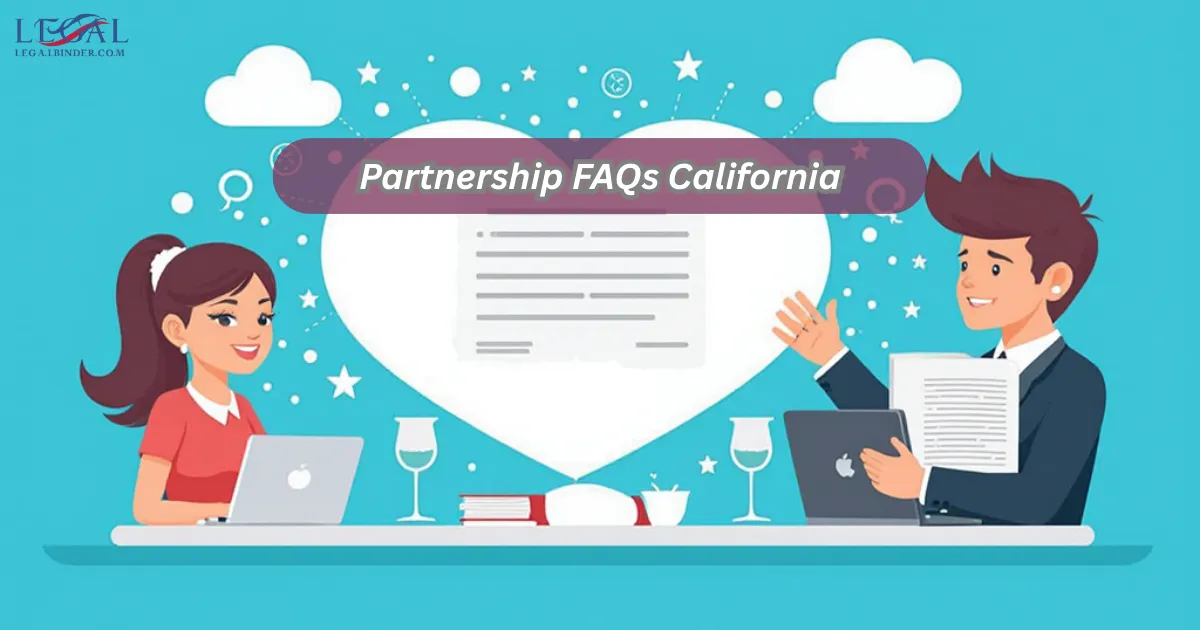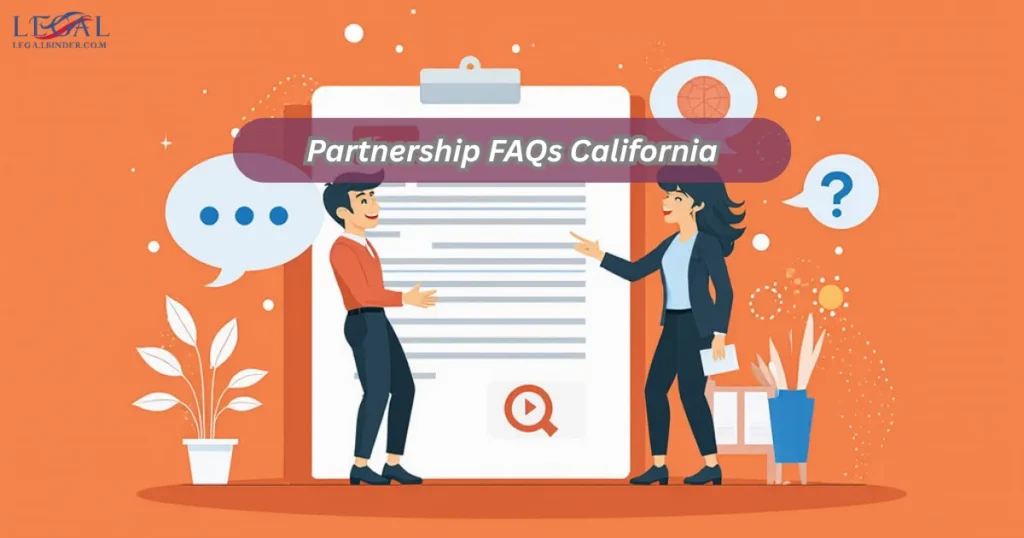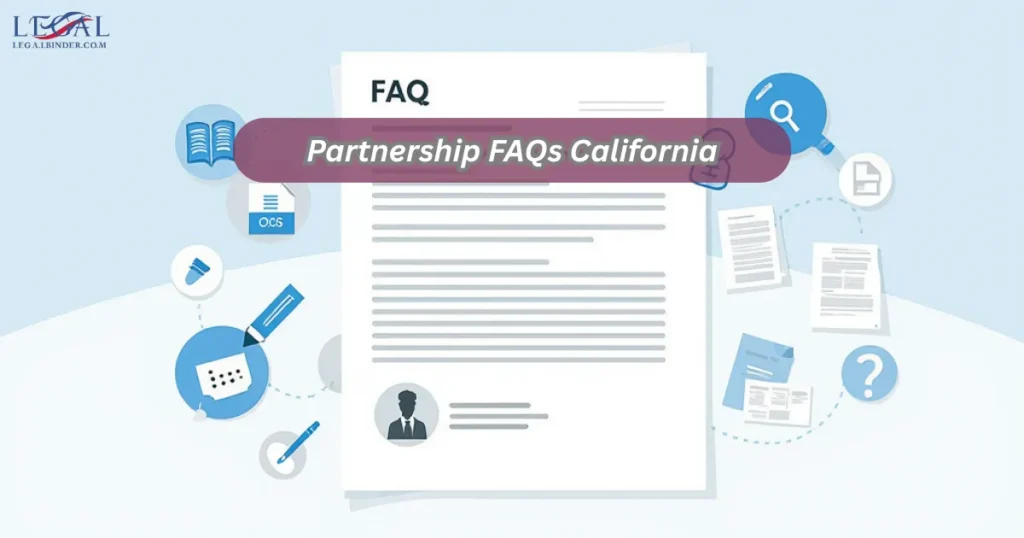Physical Address
304 North Cardinal St.
Dorchester Center, MA 02124
Physical Address
304 North Cardinal St.
Dorchester Center, MA 02124

Starting or managing a partnership is both exciting and challenging. You might already know that partnerships thrive on trust, shared vision, and clear communication. But when legal questions arise, uncertainty can quickly take over. That’s where Partnership FAQs California can help you—by giving you straightforward answers to the most common concerns about partnership agreements in the state.

Whether you’re forming a brand-new partnership, adjusting an existing one, or preparing for future challenges, this guide will walk you step-by-step through the most frequent questions business owners like you ask. For more valuable legal insights, explore our homepage.
Partnership agreements serve as the foundation of your business. Without them, your future may rest on default state rules rather than your vision.
California’s Corporations Code outlines how partnerships are formed, managed, and dissolved. The California Secretary of State also provides filing guidance.
Yes. While oral agreements are legally recognized, written agreements offer clarity and enforceability.

Unless specified, California law assumes equal sharing. You can adjust this through a written agreement.
Yes, if the partnership agreement includes removal provisions or if ordered by a court.
The agreement should specify exit procedures, buyouts, or continuation of the business.
In general partnerships, yes. Limited Liability Partnerships (LLPs) offer liability protection.
Include mediation or arbitration clauses, and review agreements regularly.
Yes, all partners can agree to amend terms, ideally in writing to avoid conflicts.
Partnerships file informational returns, but profits and losses pass through to partners’ personal taxes. See Franchise Tax Board for details.
California’s default rules will apply, which may not align with your expectations.

Partnerships expose partners to liability, while LLCs provide liability shields.
General partners manage and bear liability, while limited partners contribute capital but have limited control and liability.
General partnerships often don’t require registration, but limited partnerships and LLPs do.
Yes. Partnerships can have as few as two partners or as many as agreed.
Understanding Partnership FAQs California can give you the confidence to build and sustain a successful business partnership. By drafting clear agreements, knowing your rights, and relying on state resources, you protect your business and your peace of mind.
Don’t wait until disputes or liabilities arise. Start protecting yourself today by reviewing your partnership documents and consulting with legal professionals. For more resources, visit our homepage. With the right preparation, your partnership can thrive with stability and positivity in the years ahead.